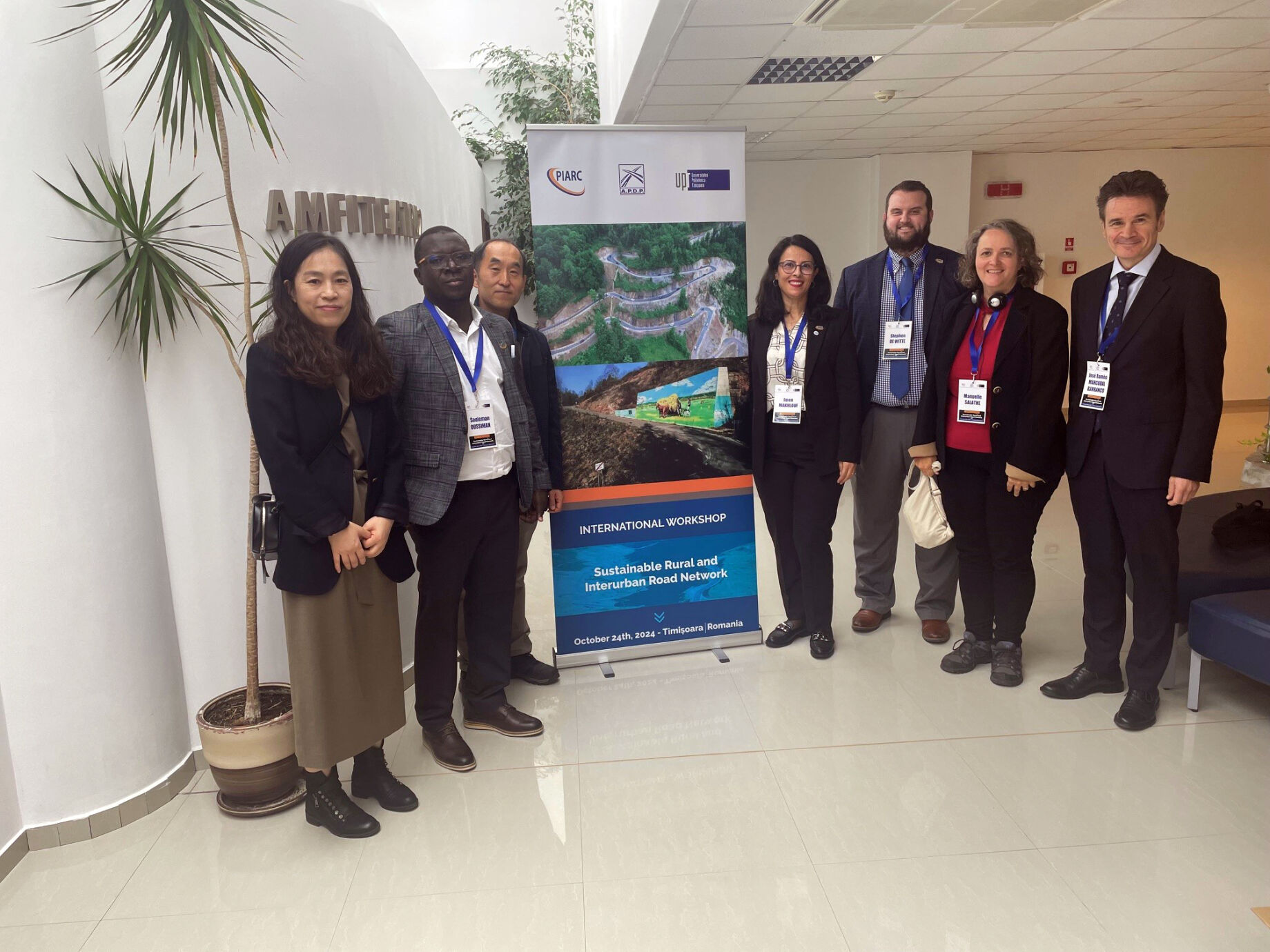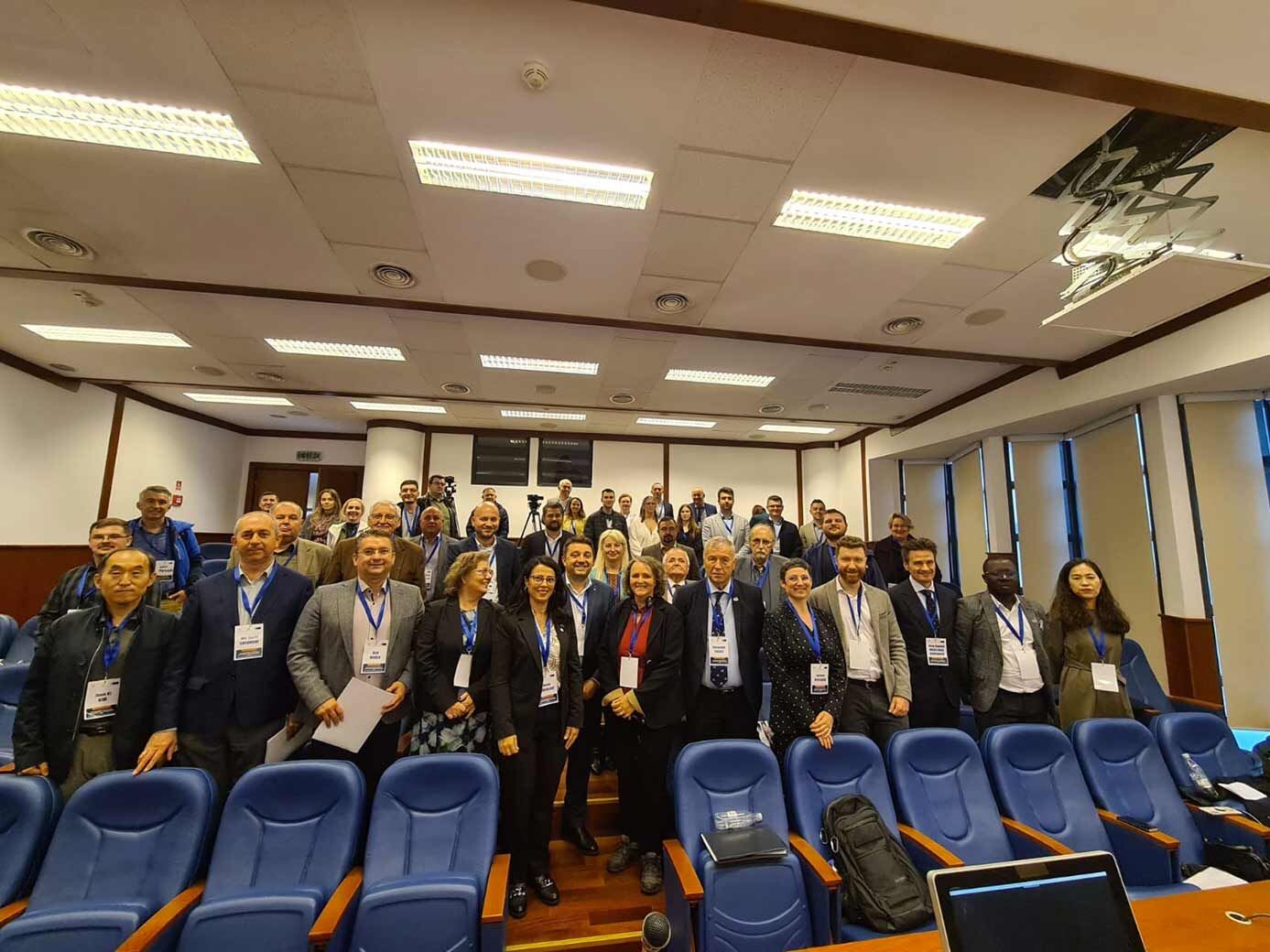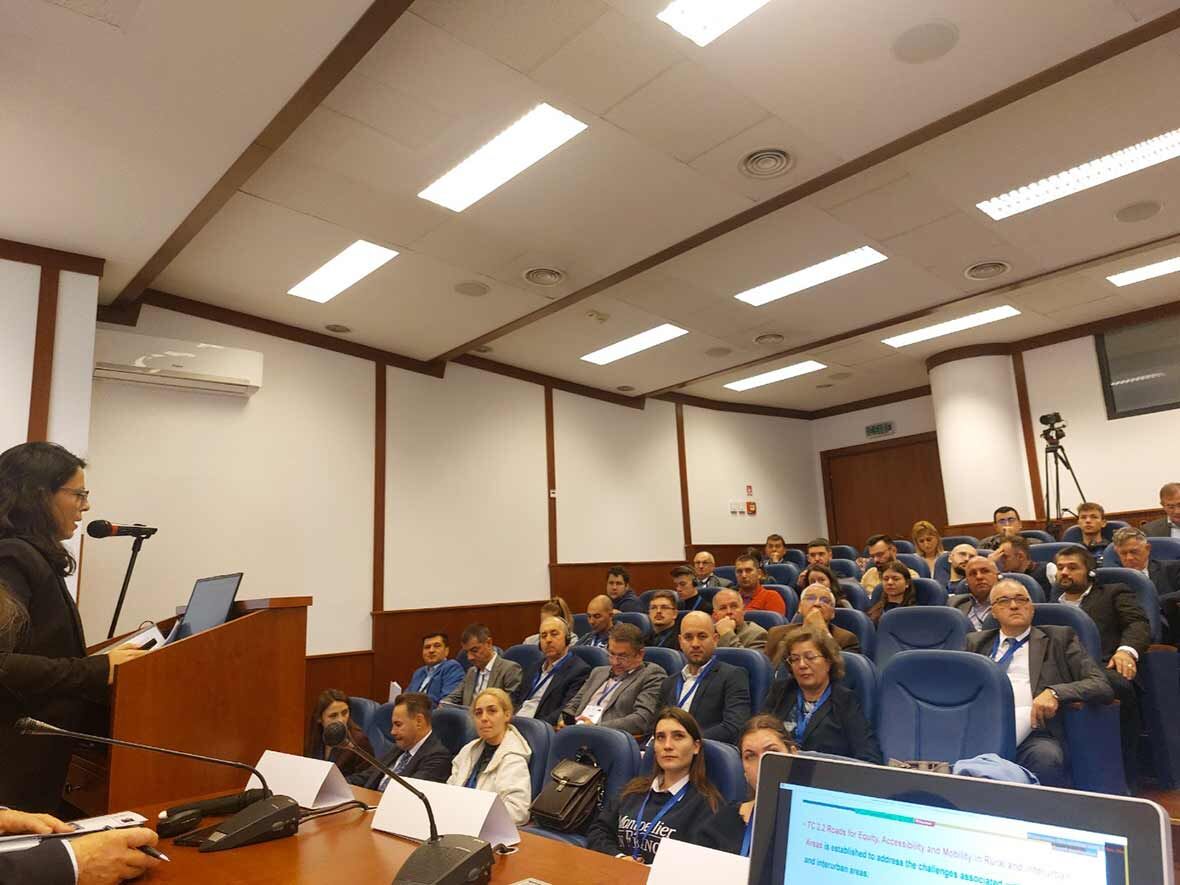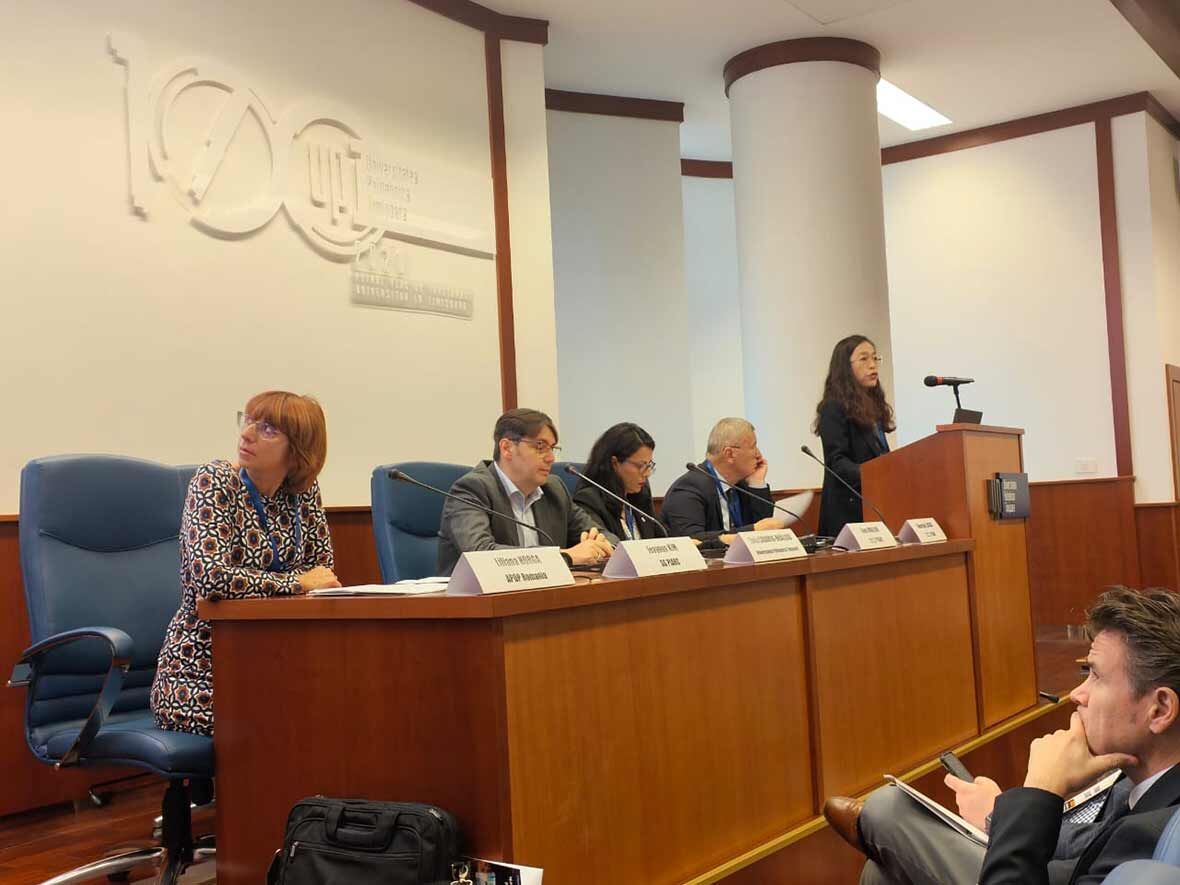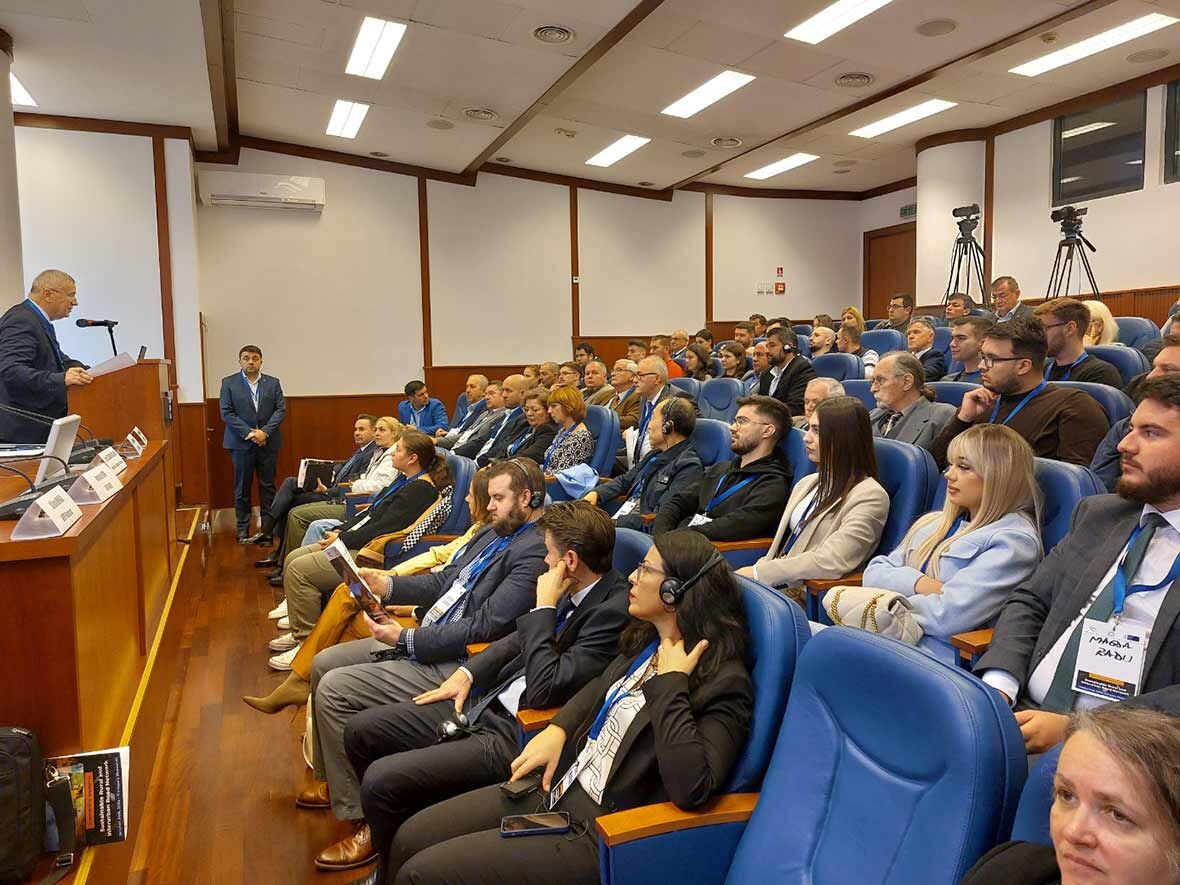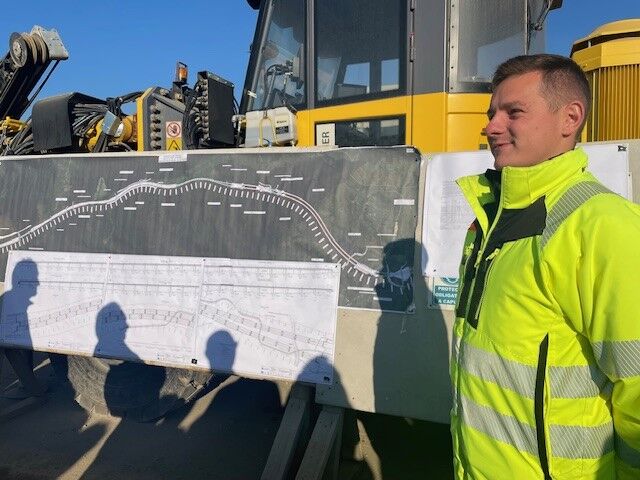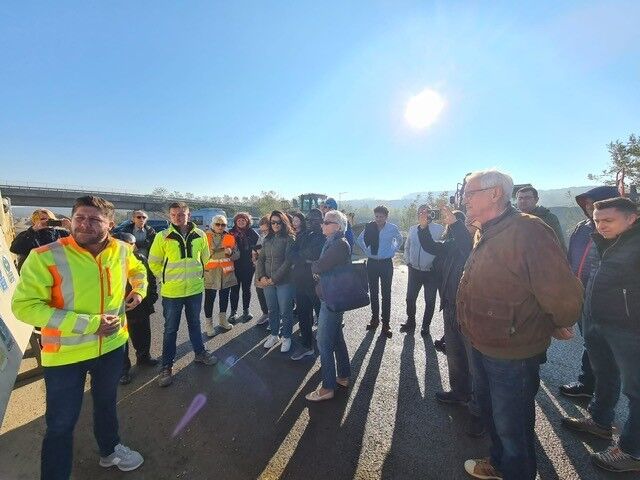Sustainable Rural and Interurban Road Network
24 october 2024, Timisoara (Romania)
The International Workshop was organized by PIARC's technical committee 2.2 "Roads for Equity, Accessibility and Mobility in Rural and Interurban Areas". This event highlighted a collective effort to discuss sustainable development for rural and interurban road networks.
Workshop report
The event gathered 100 participants: experts, policymakers, and practitioners, to discuss sustainable development for rural and interurban road networks. The workshop, themed "Sustainable Rural and Interurban Road Network", addressed emerging challenges and opportunities with a focus on innovation, safety, and technical advancements. This event highlighted a shared commitment to evolving road infrastructure that fosters inclusivity, reduces environmental impact, and enhances accessibility.
The workshop comprised four thematic sessions:
- Challenges and Opportunities in Rural and Interurban Road Development;
- Strategies for Sustainable Infrastructure;
- Planning, Financing, and Implementation;
- Innovative Solutions for Road Network Resilience and Maintenance;
- and Technical Approaches: Geometrical Design, Structure, and Pavements.
Presentations from a diverse lineup of global experts, followed by discussions and Q&A sessions, underscored both local applications and broader international significance.
Across all sessions, three key themes emerged:
- Sustainability and Resilience in Road Infrastructure: Presentations underscored the importance of resilient road networks that can withstand climatic impacts and support long-term sustainable development. Solutions such as the stabilization of road layers using lignin-based biopolymers and sustainable asphalt concrete pavements not only offer technical innovation but also contribute significantly to reducing carbon emissions.
- Improving Safety for Vulnerable Road Users: Safety, particularly for vulnerable road users in rural areas, remains a central concern. We saw compelling insights from France, China and Romania, focusing on adapting road environments to protect pedestrians, cyclists, and other non-motorized users.
- Innovative Financial and Technical Solutions: Countries like Canada, China, and Romania shared their experiences with optimizing road maintenance strategies and funding mechanisms. These examples, alongside the discussions on cost-effective and innovative materials, offer valuable lessons in balancing budget constraints with the need for sustainable, durable road infrastructure.
The workshop concluded with technical remarks from the Chair of PIARC’s TC2.2, Imen Makhlouf, who highlighted the need for continued technical innovation, improved safety measures for vulnerable road users, and a supportive policy framework to implement resilient and sustainable rural road networks globally.
A general conclusion was delivered by Paul Marc, underscored the importance of sustainable development in rural and interurban road networks, aligning with PIARC’s strategic goals. He emphasized the need for effective planning, financing, and maintenance practices in road infrastructure, as well as the valuable contributions of the international and Romanian research presented. Despite funding challenges at the national level, ongoing studies and international collaboration highlight a strong commitment among specialists to equitable and accessible road network development worldwide.
| International Workshop Proceedings - 24 October 2024 Sustainable Rural and Interurban Road Network |
|---|
09:00 - 09:30 | Opening session
| |
09:30 - 11:00 | Session 1 : Challenges and Opportunities in Rural and Interurban Road Development
| |
11:00 - 11:30 | Coffee break | |
11:30 - 13:00 | Session 2 : Strategies for Sustainable Infrastructure: Planning, financing and Implementation
| |
13:00 - 14:00 | Lunch break | |
14:00 - 15:30 | Session 3 : Innovative Solutions for Road Network Resilience and Maintenance
| |
15:30 - 16:00 | Coffee break | |
16:00 - 17:30 | Session 4 : Technical approaches: geometrical design, structure, pavements
| |
17:30 - 18:00 | Closing session
| |
Technical visit
As part of this workshop, a technical visit was held on October 25, 2024, following the route Timisoara - tunnel construction site on Lot 2 A1 Highway: Margina - Holdea, Oboare - Transluncani agricultural road - Surduc Lake, passing through several rural and interurban roads (DJ 681A, DJ 681, DJ 681D, and DC 116) and an agricultural area (Transluncani). Aspects of the design of forestry roads and rural roads were presented, as well as ongoing infrastructure construction, providing practical insights into the civil engineering challenges and solutions for these areas.
